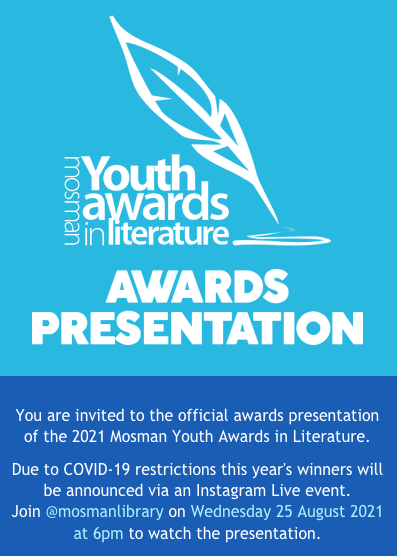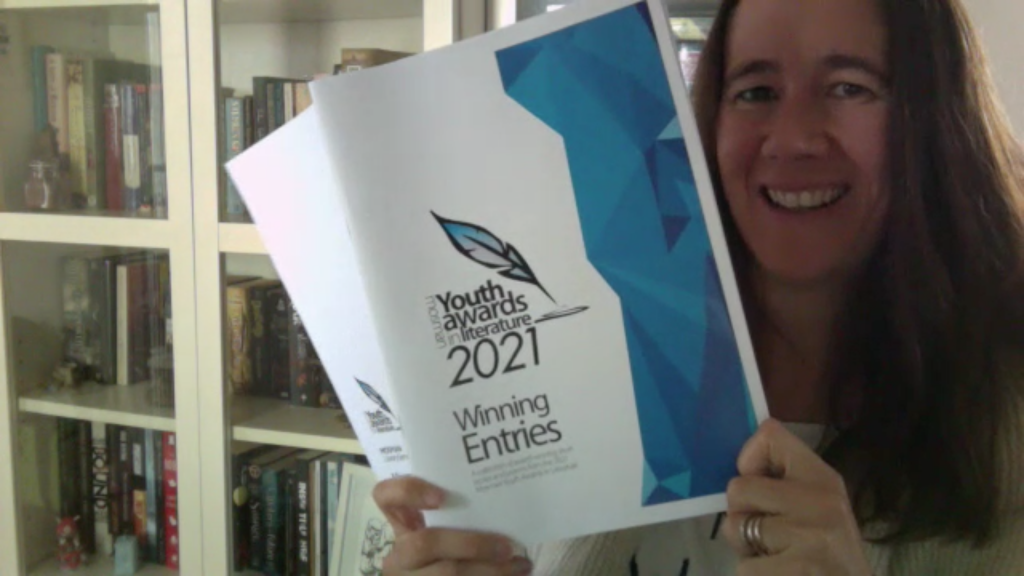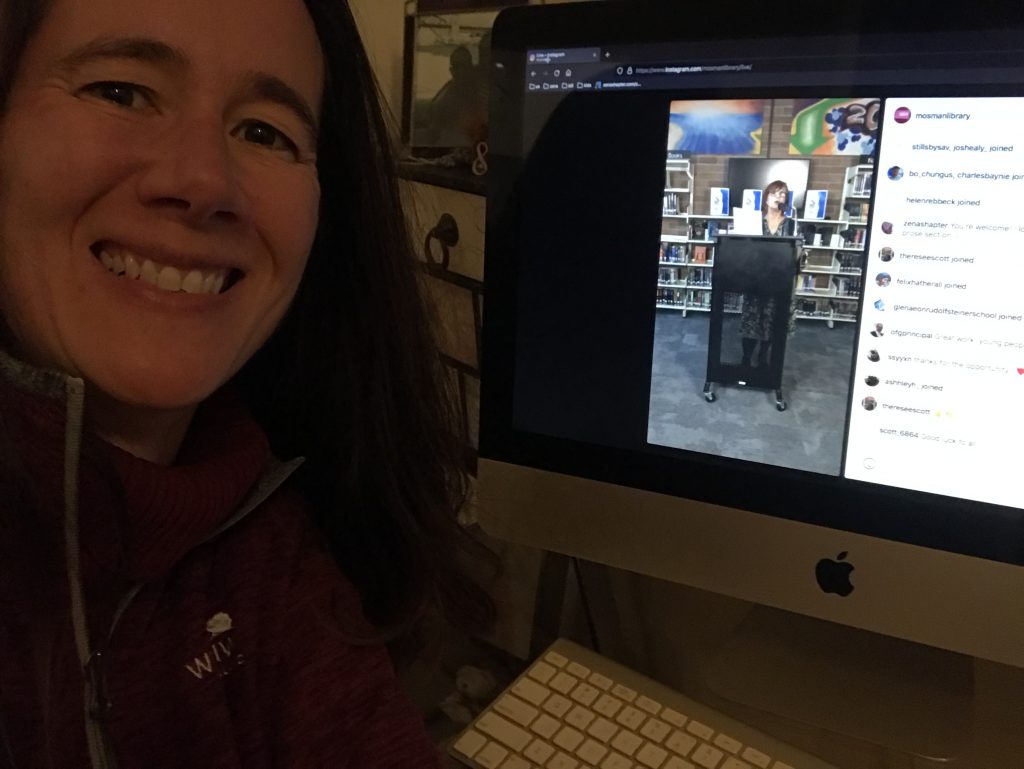Today I was supposed to be heading to Mosman’s Barry O’Keefe Library for a ceremony celebrating the 2021 Mosman Youth Awards in Literature, for which I judged the short story entries, selected the winners for the Senior Prose section, and wrote a detailed judge’s report. Since Sydney is in complete lockdown right now, the ceremony will be via a live Instagram feed instead, but given the writing tips in my report can be so useful for other writers I’ve posted them below. Past reports can also be found here, here and here!
Despite the restrictions of Covid-19, the 2021 competition saw an impressive increase in entries and quality, reflecting a clear rise in interest in creative writing, backed up by experimental forms and insightful stories. Yay! There were entries that made me well up with tears, that gave me a chuckle, that had me appreciating both familiar and unfamiliar perspectives, and I enjoyed them all!
The stories covered a vast array of themes, the most popular being relationships, poverty and murder. Settings ranged from the domestic to the corporate, from Australian towns and cities to the Yemen, Somalia, Vietnam, India and London. I read about soldiers, poets, science experiments, golf, whipcracking, high school, alcoholism, depression, anxiety, alienation, loss, conformity, freedom, industrialisation, environmentalism, a haunted house, vampires, werewolves, devils, and even a picnic in the sky!
The most successful entries were those that focused on narrative voice, reader engagement and character storytelling, with clear well-told plots and satisfying endings. These writers simply thought of a story to tell, imagined themselves as the main character of that story, and expressed that experience breath by breath.
The least successful entries were those clearly written for high school assignments, overwritten at the expense of narrative voice and reader engagement. Many of these stories involved reimagined poets, ole London town, corporate conformity, and appreciation for the natural environment.
To help writers improve, I took note of the most common writing flaws and include my top ten below (in order of frequency), as well as tips on how to improve for next time – hopefully it assists other writers too:
Flaw #1: Story
No real story (nothing actually happens), the story is too abstract or rambling – to fix this, writers should study common story structure and how to create stories with meaning (see the short courses on structure over here).
Flaw #2: Engagement
A lack of reader engagement – to fix this, writers should invest in simply imagining themselves as the story’s main character, with that character’s specific wants and hurts, then speaking from that perspective from the very first sentence. Also, see my post on getting started over here.
Flaw #3: Ending
A pointless or unclear ending – to fix this, writers should work out a clear resolution for their story and foreshadow it from the beginning (again the short courses on structure over here will help).
Flaw #4: Overwriting
Overwritten – to fix this, writers should focus less on using language to impress readers and more on using language to express and communicate. Also, see my post on overwriting over here.
Flaw #5: Grammar
Inconsistent use of tense and/or incorrect grammar – to fix this, writers need to edit their work (best done after a period of time away from the story).
Flaw #6: Tone
An overly didactic tone – to fix this, writers should imagine they’re speaking to a reader who already agrees with their viewpoint, then write the story.
Flaw #7: Transitions
Poor transitions between scenes and/or confusing sequence of events – to fix this, writers should ask a friend who doesn’t know the story to read it and check they can understand what’s happening when and where.
Flaw #8: Perspective
Point of view issues – to fix this, see my post on perspective over here.
Flaw #9: Emotion
A lack of emotion – to fix this, writers should pick a theme or topic they feel passionately about, because if they don’t care about what they’re writing, readers won’t either.
Flaw #10: Coincidence
Events too coincidental – to fix this, writers should check their character’s behaviour actually fits their personality and use foreshadowing, so that when surprising events happen those events are still surprising yet completely expected.
With all that said, the entries were amazingly creative and I applaud every single writer for their imagination and creative spirit. My sincere congratulations go to absolutely everyone who entered, because it was a joy to read your stories – flaws and all!
Special congratulations go to the winners, whose stories made me smile at their end, knowing I wouldn’t change a single word. Well done, everyone!
Thank you to the Mosman Library Service, especially Linda Horswell, and everyone who makes these awards possible! You rock!









